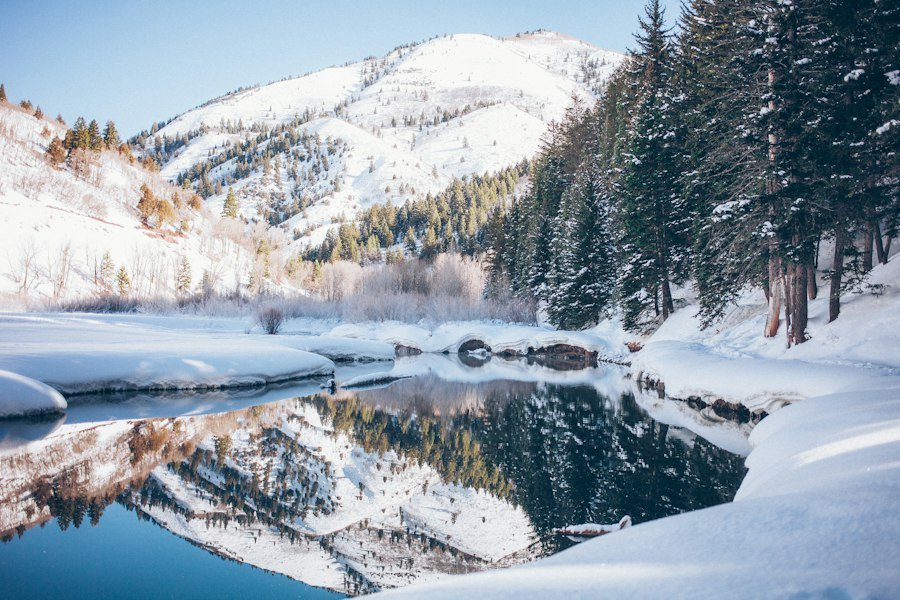Winter sports have been gaining popularity in China in recent years, thanks to the country’s efforts to promote winter sports and prepare for the 2022 Winter Olympics in Beijing. While skiing and snowboarding are the most popular winter sports in China, other activities such as ice skating, ice hockey, and curling are also enjoyed by many.
China is home to several popular winter sports destinations, with the most well-known being the ski resorts in the northern part of the country. The most famous of these is Yabuli Ski Resort in Heilongjiang Province, which offers a wide range of slopes for skiers and snowboarders of all levels. Other popular destinations include Beidahu Ski Resort in Jilin Province and Nanshan Ski Village near Beijing. These resorts offer not only excellent skiing and snowboarding facilities but also a variety of accommodations, restaurants, and entertainment options.
Table of Contents
ToggleKey Takeaways
- Winter sports are becoming increasingly popular in China, with skiing and snowboarding being the most popular.
- Learning essential Chinese vocabulary for skiing and snowboarding can greatly enhance your experience on the slopes.
- Common phrases for communicating on the slopes, such as “slow down” and “watch out,” can help prevent accidents.
- Understanding Chinese ski resort culture, including tipping practices and locker room etiquette, can make your visit more enjoyable.
- Knowing Chinese terminology for snow conditions and weather, such as “powder” and “blizzard,” can help you plan your trip accordingly.
Essential Chinese Vocabulary for Skiing and Snowboarding
If you’re planning to hit the slopes in China, it’s helpful to know some basic skiing and snowboarding terms in Chinese. Here are a few essential vocabulary words:
– Skiing: 滑雪 (huá xuě)
– Snowboarding: 滑雪板 (huá xuě bǎn)
– Slope: 坡道 (pō dào)
– Lift: 缆车 (lǎn chē)
– Goggles: 护目镜 (hù mù jìng)
– Helmet: 头盔 (tóu kuī)
– Gloves: 手套 (shǒu tào)
– Boots: 雪靴 (xuě xuē)
– Bindings: 绑定器 (bǎng dìng qì)
– Piste map: 雪道图 (xuě dào tú)
Common Phrases for Communicating on the Slopes
When you’re on the slopes, it’s important to be able to communicate with others, whether it’s asking for help or directions or complimenting and encouraging others. Here are some common phrases you can use:
– Where is the beginner slope? 初学者坡道在哪里?(Chū xué zhě pō dào zài nǎ lǐ?)
– Can you show me how to do this? 你能教我怎么做吗?(Nǐ néng jiāo wǒ zěn me zuò ma?)
– Great job! You’re doing really well! 做得很好!你滑得很棒!(Zuò dé hěn hǎo! Nǐ huá dé hěn bàng!)
– Keep going! Don’t give up! 加油!不要放弃!(Jiā yóu! Bù yào fàng qì!)
Understanding Chinese Ski Resort Culture
Chinese ski resort culture may be different from what you’re used to, so it’s helpful to have an overview before you go. In China, skiing and snowboarding are seen as luxury activities, and many resorts cater to high-end clientele. This means that prices for lift tickets, equipment rentals, and accommodations can be higher compared to other countries.
When navigating Chinese ski resorts, it’s important to be aware of the local customs and etiquette. For example, it is common for Chinese skiers and snowboarders to take breaks and gather in large groups on the slopes. This can sometimes lead to congestion and slower traffic, so it’s important to be patient and respectful of others. Additionally, it’s common for Chinese skiers and snowboarders to wear brightly colored clothing and accessories, so don’t be surprised if you see a lot of vibrant outfits on the slopes.
Chinese Terminology for Snow Conditions and Weather
Being able to describe snow conditions and weather is important for planning your day on the slopes. Here are some vocabulary words and expressions related to snow conditions:
– Powder snow: 粉雪 (fěn xuě)
– Packed snow: 压实雪 (yā shí xuě)
– Icy snow: 冰雪 (bīng xuě)
– Fresh tracks: 新鲜的轨迹 (xīn xiān de guǐ jì)
– Hard-packed: 硬压实 (yìng yā shí)
– Soft snow: 软雪 (ruǎn xuě)
– Slushy snow: 湿雪 (shī xuě)
– Blizzard: 暴风雪 (bào fēng xuě)
– Sunny: 晴天 (qíng tiān)
– Cloudy: 多云 (duō yún)
Equipment and Gear Vocabulary for Winter Sports in China

Knowing the vocabulary for ski and snowboard equipment is essential when renting or buying gear in China. Here are some useful terms:
– Skis: 滑雪板 (huá xuě bǎn)
– Snowboard: 滑雪板 (huá xuě bǎn)
– Ski boots: 滑雪靴 (huá xuě xuē)
– Snowboard boots: 滑雪板靴 (huá xuě bǎn xuē)
– Ski poles: 滑雪杖 (huá xuě zhàng)
– Snowboard bindings: 滑雪板绑定器 (huá xuě bǎn bǎng dìng qì)
– Helmet: 头盔 (tóu kuī)
– Goggles: 护目镜 (hù mù jìng)
– Gloves: 手套 (shǒu tào)
– Jacket: 夹克 (jiá kè)
When renting equipment, you can use the following phrases:
– I would like to rent skis/snowboard and boots. 我想租滑雪板/滑雪靴。(Wǒ xiǎng zū huá xuě bǎn/huá xuě xuē.)
– How much does it cost to rent for a day? 一天租多少钱?(Yī tiān zū duō shǎo qián?)
– Do you have helmets/goggles/gloves for rent? 你们有头盔/护目镜/手套可以租吗?(Nǐ men yǒu tóu kuī/hù mù jìng/shǒu tào kě yǐ zū ma?)
Safety Tips and Emergency Phrases for Winter Sports Enthusiasts
Safety should always be a top priority when participating in winter sports. Here are some safety tips for skiing and snowboarding in China:
1. Wear appropriate safety gear, including a helmet and goggles.
2. Follow the rules and regulations of the ski resort.
3. Stay within your ability level and don’t attempt slopes that are too advanced for your skill level.
4. Be aware of your surroundings and watch out for other skiers and snowboarders.
5. Stay hydrated and take breaks when needed.
6. If you’re injured or need assistance, seek help from ski patrol or resort staff.
In case of an emergency, it’s important to know some basic phrases to seek help:
– Help! 救命!(Jiù mìng!)
– I’m injured. 我受伤了。(Wǒ shòu shāng le.)
– Call an ambulance. 打电话叫救护车。(Dǎ diàn huà jiào jiù hù chē.)
Chinese Skiing and Snowboarding Etiquette
Respecting local customs and etiquette is important when skiing or snowboarding in China. Here are some tips:
1. Be patient and respectful of others on the slopes, especially beginners.
2. Yield to skiers or snowboarders downhill from you.
3. Avoid stopping in the middle of a slope or obstructing the path of others.
4. Follow the instructions of ski patrol and resort staff.
5. Keep the slopes clean by disposing of trash properly.
Regional Differences in Winter Sports Terminology Across China
China is a vast country with diverse regional cultures and dialects, which can lead to differences in winter sports terminology across different regions. For example, in northern China, where skiing is more popular, the term for skiing is “húaxuě” (滑雪), while in southern China, where skiing is less common, the term “xuěshuā” (雪刷) may be used instead.
Similarly, there may be regional differences in vocabulary for snow conditions and weather. For example, in areas with heavy snowfall, the term for powder snow may be “fēn xuě” (粉雪), while in areas with more icy conditions, the term “bīng xuě” (冰雪) may be used instead.
Resources for Learning More About Chinese Winter Sports Vocabulary
If you’re interested in learning more about Chinese winter sports vocabulary, there are several online resources available. Websites such as FluentU and Duolingo offer language lessons and exercises specifically tailored to skiing and snowboarding vocabulary. Additionally, language exchange programs such as Tandem or HelloTalk can connect you with native Chinese speakers who can help you practice your language skills on the slopes.
In conclusion, winter sports in China are gaining popularity, and there are many exciting destinations to explore. Knowing some basic Chinese vocabulary and phrases related to skiing and snowboarding can enhance your experience and help you communicate with others on the slopes. By understanding Chinese ski resort culture, respecting local customs, and prioritizing safety, you can have a memorable and enjoyable winter sports adventure in China.
Contact our head teacher, Chen Huimin, at info@lcchineseschool.com if you want to learn Chinese or have additional questions about our Chinese programs.
Sign up for a free trial class here.
Learn about our Internship Program in China.
Get free Chinese learning resources.
Learn about China’s 2024 Offical Holiday Schedule








